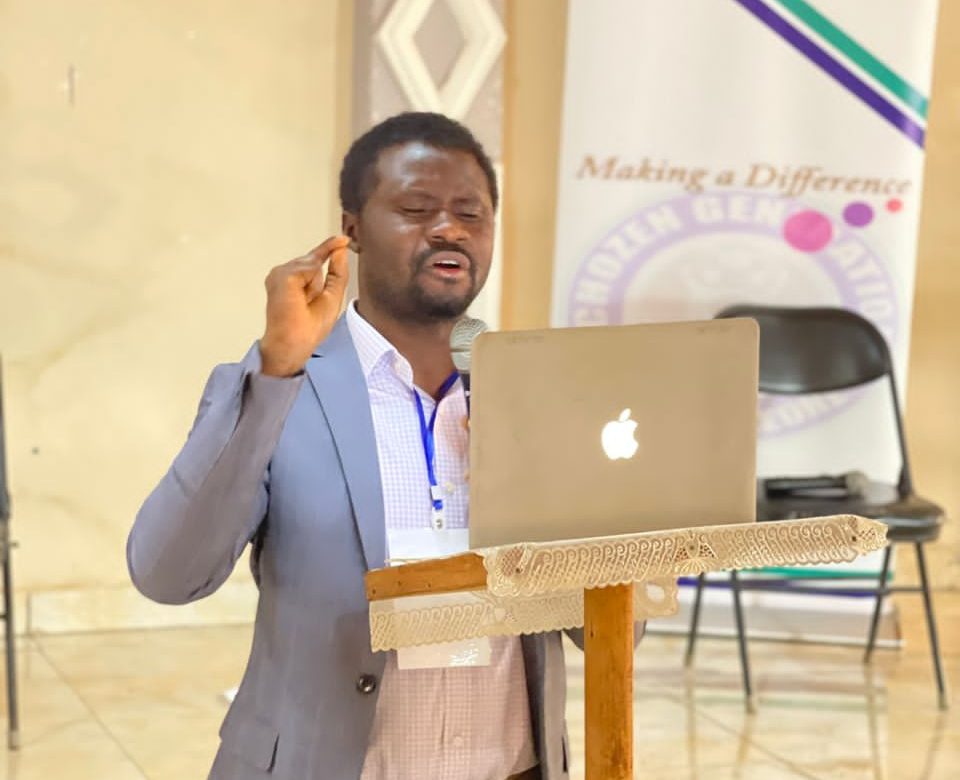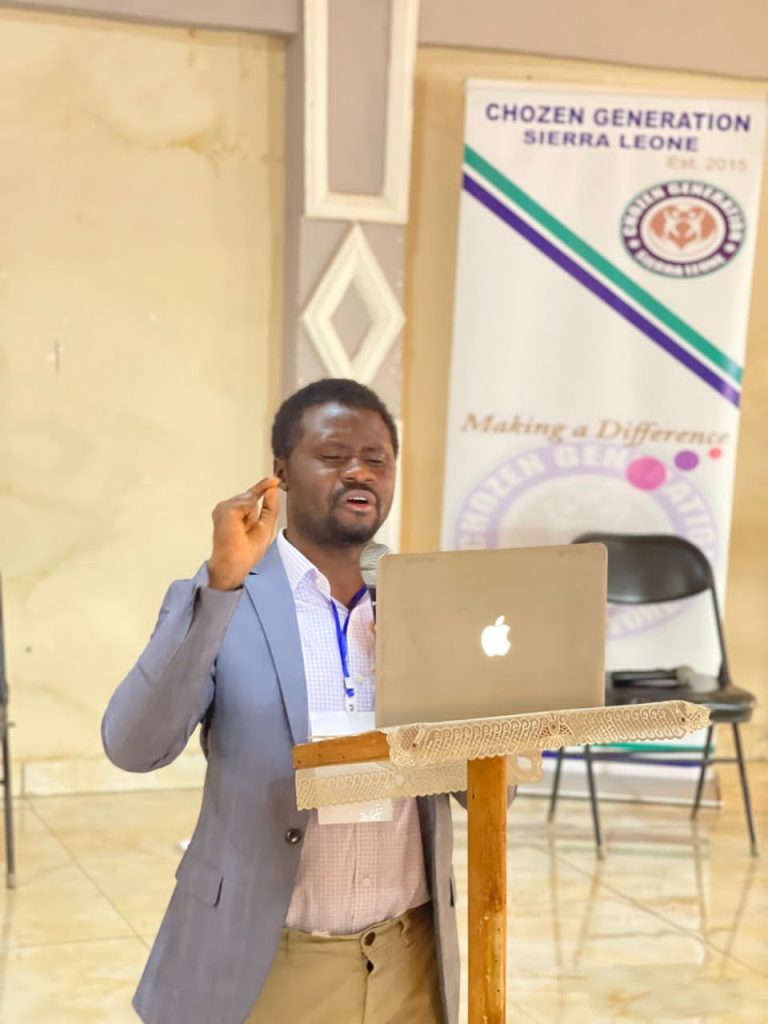Keynote speech by Augustine S. Marrah, Esq. on the invitation of Chozen Generation at their First Annual Delegate Conference on 6th November 2021 in Makeni City
- Good afternoon Chozen Generation members and delegates. It is quite an honor to be invited to speak to us about some matters which have upset our national aspiration. Let me say that I find it hopeful that the young people are having conversations about eradicating corruption, nepotism, and tribalism.
- This is not an opportunity extended to me for a scholarly expose of these phenomena. I will leave the academics to brood over why societies are afflicted with corruption or nepotism or why tribal affiliations tend to trump patriotism, especially in sub-Saharan Africa. As a young person myself, there is no suitable time to have open and honest conversations about the ills of corruption, nepotism, and tribalism.
- Let me start by noting that at the heart of corruption is nepotism which is the practice of favoring relatives and friends especially in giving job opportunities and such a practice of leadership creates a conducive atmosphere for tribalism to foster.
- We live in a deeply religious society so sometimes I wonder how it came to be that we have so much corruption and nepotism. These are social ills that should be rife in an irreligious or unrepentant society. But the irony is, we live in a society where we preach one thing but do the very opposite. Our leaders would talk about corruption, nepotism, and tribalism as if they were not associated with them in any manner. They sometimes campaign on ending corruption only to fly society on a higher altitude of corruption, nepotism, and tribalism when they are elected.
- In 2019, I was privileged to be appointed one of seven persons to craft the current national anti-corruption strategy. We went across the nation to understand the causes and layers of corruption in different parts of the country. I was shocked at the deep-seated impoverishment of our people and the level of mistrust of leadership on the part of citizens, who have grown to perceive leadership and those at the helm of power as the grandmasters of corruption. So, for them, there is no other standard other than being engaged in or supporting corruption themselves.

THE COST OF CORRUPTION AND NEPOTISM
- It is pertinent to note that when we speak about corruption, we are not hazarding a guess about how it has the potential to rip a nation apart. The Truth and Reconciliation Commission’s findings documented the causes of the civil conflict and recorded corruption and nepotism as one of the primary causes of the civil war. It was corruption that led to the killing of more than one hundred thousand people, unquantifiable maiming, and violation of women and children. It was the discontentment with the level of corruption in the country that had brewed over time that was channeled through the barrel to wreak wanton destruction on a nation. For almost twenty years since we introduced the Anti-Corruption Commission in our governance process, very little has changed. Corruption and nepotism have only yielded much dividends for the partakers.
- Before society degenerates into absolute chaos, the effects of corruption are often manifest. The hospitals would be starved of medical supplies to such an extent that patients are more likely to pass in hospitals than to be cured. Roads would be perpetually in bad shape because someone who has been awarded the contract has already given half the sum of the contract as backhanders before the contract sum was paid. School supplies intended to improve learning are siphoned into personal endeavours. And as for justice, it is for sale to the willing buyer.
- Corruption and nepotism have crippled our country. While the older generation in other countries handed their young people legacies of technology, thriving mining industries, international commerce, cutting edge medical care, booming aviation industries, what have been bequeathed to the young people of Sierra Leone are corruption, nepotism, bad governance, battered economy and deep tribal sentiments. This is what the youth of Sierra Leone have been given to compete with their counterparts across the world.
- We talk too often about how corruption and nepotism have damaged our entire governance system. How it has killed our medical, educational and justice systems. But we speak very little about how it has killed our future even before it arrives—the future of young people. The highest cost of corruption is not the number of things and structures in society that it decimates, it is the future that it robs the young of, the destinies injured, and the aspirations rendered impossible.
Download a PDF copy of this speech DESIGNING THE SIERRA LEONE OF OUR DREAMS- THE ROLE OF YOUNG PEOPLE IN TACKLING CORRUPTION, TRIBALISM AND NEPOTISM
BREWING TRIBAL SENTIMENTS
- Sierra Leone is a multi-ethnic society with very rich cultural diversity. You’d think that having different tribes or ethnic groups should be a great source of a varied approach to development and co-existence.
- In the last ten years, tribal sentiments have been whipped up whether by political manipulations of poor people or by deliberate power or governance structures. In recent times, there have been calls for ethnic audits in certain institutions. These calls are a result of the growing belief that certain tribes are being disproportionately advantaged in the power dynamics. While this may not be true, it is imperative to address tribal sentiments thoroughly and decisively.
- Indeed, wherever corruption and nepotism thrive, tribalism would be inevitably produced. This is because the corrupt would tend to share their loot with their friends and families and in the process, the false urge to build tribal solidarity to protect the loot emerges. Invariably, corrupt politicians would fan tribal sentiments to make it appear that the people have access to resources only because their kinsman is in power and won’t have such access if someone other than their tribesman were at the helm.
- The political system of winner-takes-all has also not helped to defuse tribal tensions. This is because usually, the winner invites his kinsmen from Bo if they are green or from Makeni if they are red to feast. Only the crumbs would be shared with folks who do not speak their tongue. Consequentially, contracts, job opportunities, and access to power are concentrated in tribal circles and those whom the tribesmen can benefit from and not distributed across the nation.
DESIGNING THE FUTURE OF OUR DREAMS
- It is a huge responsibility for young people to imagine beyond the chaos and to design the future of our dreams. This is because what we currently have is a nightmare and nothing good can come out of it.
- If we are to design a far better future for ourselves, simply saying “No” to corruption is insufficient. We must also say “Yes” to industry and entrepreneurship. I know this is herculean since we do not even have the tools to start with. But beyond anything, we need to have the will and spirit to design a better collective future. So today, I’m encouraging every one of us to develop a strong will to design the future. I know many young people who have been wearied by the many and various deficits in our society. Do it for them, do it for yourselves, for our children, and do it for a better Sierra Leone.
- In some cases, young people are direct beneficiaries of corrupt leaders. Most commonly, they may have acquired an education through the funding of such leaders and their corruptly acquired funds. As a result of this, they fail to stand up to demand better and widely distributed resources, they become actively engaged in defending wrongful conduct. But young people must view corruption as the single biggest phenomenon of destruction of any society. They must view corruption, tribalism, and nepotism as the very robbers of their future. Young people should demand for all and just not be satisfied when they and their families are given while the rest of society languishes. Young people must learn to use what they have to challenge systematic ills and demand national development, even if this includes education acquired by funding from corrupt leaders. We can’t design a future if we are complicit in the wrongs. If we are the errand boys and girls of failed political classes, we can’t imagine a future, not to talk of designing it.
- We must design a future where all tribes are seated at the table or given equal access to corridors. A future where technologies are harnessed to the advantage of Sierra Leoneans: a future of globally competitive manufacturing in diverse industries; a future of opening technology hubs across the country; a future of thriving agricultural industry; a booming regional trade and a future of a functional justice system. The only way we can erase the deceit of corruption, tribalism, and nepotism is to confront them with the truth of political inclusion, good governance, economic development, and impartial justice.
- We can’t tackle these ills with nothing. Young people must channel their energies towards organizing against corruption, confronting nepotism, and exposing tribalism. The future we design should embrace our diversity while guarding against the abuse of tribal identities. It should give no accommodation to nepotism and corruption nor leave tendencies for a few to become rich at the expense of the rest.
- Young people must be deliberate and unapologetic to political leadership in stating that our dreamed future is to actively compete with the rest of the world and not to be inheritors or beneficiaries of corruption, nepotism, and tribalism. It is therefore time to reject corruption for cooperation, nepotism for equalitarianism, and tribalism for patriotism. This is how to design the Sierra Leone of our dreams.
Download a PDF copy of this speech DESIGNING THE SIERRA LEONE OF OUR DREAMS- THE ROLE OF YOUNG PEOPLE IN TACKLING CORRUPTION, TRIBALISM AND NEPOTISM
